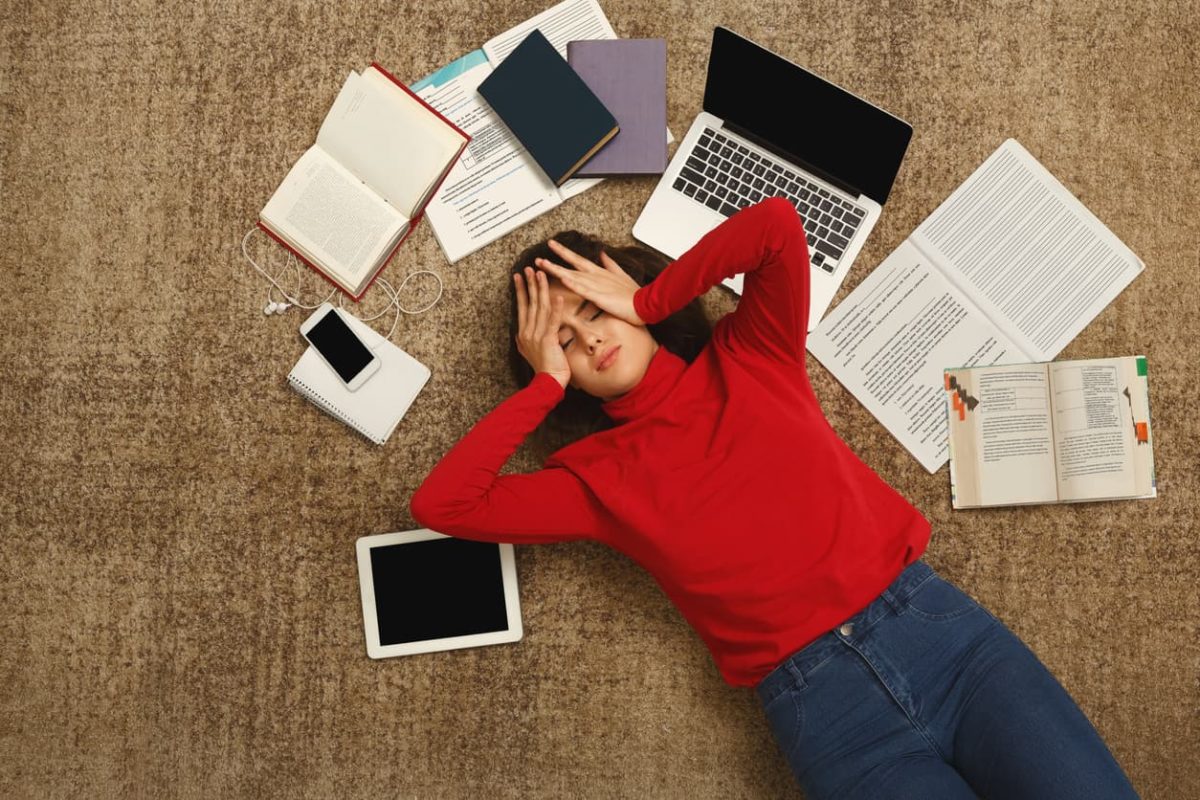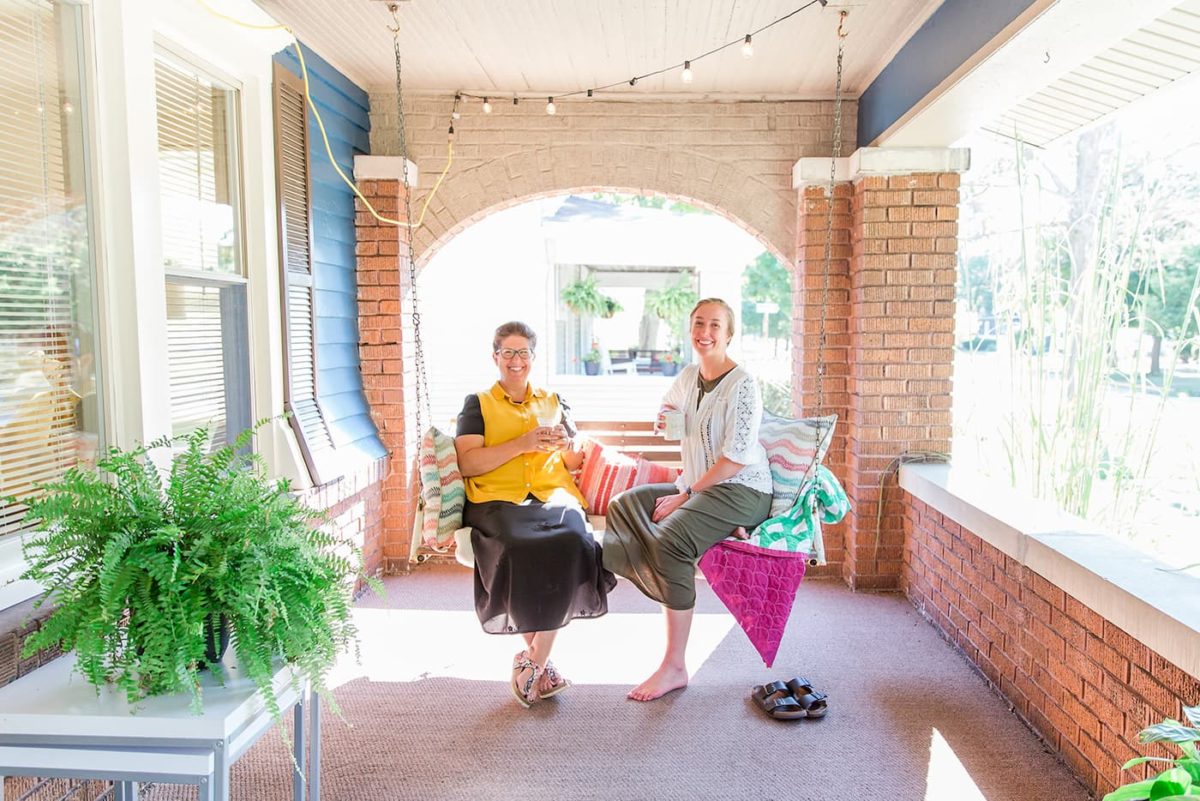So many apps, so little time. Ever get an email reminder of something you completely forgot about? I know that feeling! Today, we have smartphones with apps that are supposed to help us with everything from simplifying grocery lists for specific recipes to monitoring our homes. You would think this would make our lives simpler. However, too much information – and technology – can be overwhelming and result in a loss of productivity and increased stress. That’s why you need to know how to use a weekly planner.
Technology has disrupted our lives in many ways. Nearly half of students surveyed by Elon University said they feel overwhelmed and stressed compared to just 18 percent before technology became mainstream and research from Pew Research found that the continued (over) use of technology shows a “strong association” between ” heavy phone and internet use and losses of analytical and problem-solving skill, memory formation, contextual thinking, conversational depth and empathy as well as increases in anxiety.”

No wonder many experts at Berkeley University suggest unplugging and getting back in touch with ourselves, our environment, and our relationships. Whether you’re a student, a parent, an entrepreneur or just someone who is passionate about staying organized, knowing how to use a weekly planner is a proven way to keep you organized, focused, and on track.
In fact, clinical psychologist Barbara Markway, Ph.D. points out six very valuable reasons for knowing how to use a weekly planner:
- It helps with time management.
- Improves productivity.
- Provides stress relief.
- Multiple health benefits.
- More free time.
- Provides you with documented records.
In addition to these benefits, research has repeatedly shown that the act of physically writing things down improves the retention of notes. Specifically, when students take notes electronically, they are most often writing the notes verbatim versus those who write their notes by hand, who must think about the words they are writing.
Imagine having everything with you – recipes, meetings, contacts, deadlines, important dates, accounts, appointments – in a single location that is available even if the power goes out.
Clearly, there are plenty of cases for having a planner in our lives. Here are some tips for making the most of your weekly planner in this new decade and beyond.
9 Steps on How to Use a Weekly Planner
The goal of having a weekly or daily planner is to be more organized and productive, while also reducing stress. So use these techniques to develop the healthy habit of utilizing your planner.
Make It a First Stop
When you wake up in the morning, instead of running to your laptop, tablet, or smartphone, set time for a review of your daily plans as you have your morning coffee or tea. Start with doing this one day at a time: look at your day each morning and be clear about what is on your schedule for the day.
Keep Your Weekly Planner Close
You should always have your planner with you – whether by your desk or in your purse/backpack – so you can have your information handy and add new information when it happens.
Make Your Weekly Planner Yours
Learning how to use a weekly planner means making it your planner. Don’t let your children, husband, friend, neighbor, colleague, or anyone else write in your planner. Think of it as your personal, private filing cabinet. It is your personal and private space.
Add Each New Item As It Happens
Work to make it a habit to enter new schedules, appointments, notes, contacts, etc. in your planner as they happen. It may be tempting to add it later but there is nothing wrong with asking someone, “Oh okay that’s great. Give me just a minute to write this down.” Give yourself permission to take the time to do this.
Keep An Extra Pen/Pencil With You for Your Weekly Planner
Ink runs out and lead will break – it happens – so always make sure you have an extra pen or pencil with you. You never know when you’ll run into an old friend, make a new appointment, or come up with a genius new idea! Make sure you always have the instruments with you to save those valuable moments.
Avoid Moisture
Keep your planner safe from moisture and dampness. Not only will this deplete the quality of the paper but it can also cause your records to be deleted! Make sure it is stored in a safe place that is easily accessible.
Allow For Margin
When using your planner, take time to mentally go through your schedule so you can provide yourself with enough margin throughout your day. This will help you reduce stress by ensuring you have the right amount of time to complete each task. For example, if you have a doctor’s appointment, make sure to allow time for the transportation to and from the appointment, as well as the time you will be spending waiting for the doctor to see you. You may very well end up with extra time at the end of the day to relax!
Use Erasable Pens or Pencils
An erasable pen or a pencil with an eraser will help you keep your weekly planner neat and organized so you can easily replace outdated information without scribbling through it. Remember: Your weekly planner is like your personal, private office and having an untidy workspace “could be detrimental to the accuracy of conscientious people,” according to research.
Allow Time For Acknowledgment
In the work of forming healthy habits, it is critical to allow your brain to feel the pleasure associated with a task you’ve completed. This is the main reason we make decisions: Our brains record the result and, when favorable, we feel that “feel-good” sensation that leads us to do the same tasks again.
So as you are finishing up your day, take time in the evening to go over your planner and review the many different tasks and accomplishments of your day that were kept organized and timely because of your use of the planner.
When you are doing this, take a moment as well to carry over uncompleted tasks from the previous day or week, to the next day or week.
The Ultimate Weekly Planner is an invaluable tool to help you get things done and prioritize. When you use it intentionally it will lead to less stress, more productivity, and a peaceful mind.


